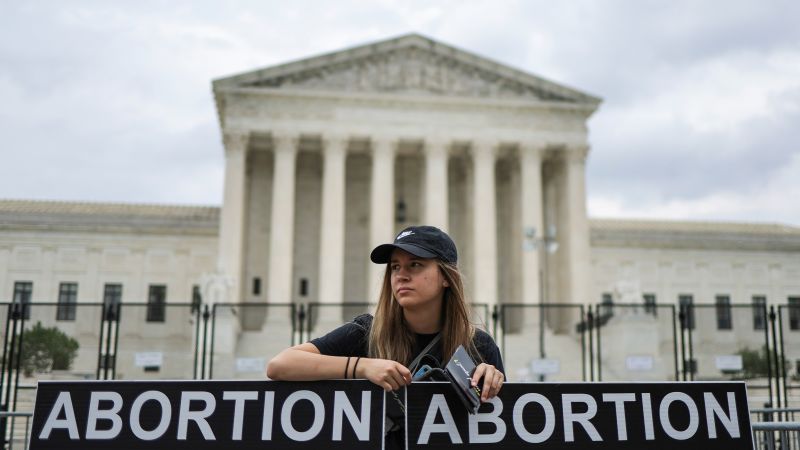Two years after the national right to abortion was overturned in the landmark Roe v. Wade case, the Supreme Court is now considering a case brought forth by the Biden administration challenging Idaho’s enforcement of its abortion ban in cases of medical emergencies. The Justice Department argues that federal law requires hospitals to offer abortions to stabilize the health of emergency room patients, even in states like Idaho that have banned the procedure. Attorney General Merrick Garland has characterized the case as part of the department’s efforts to protect and advance reproductive freedom in the aftermath of Roe’s reversal.
The Idaho case, while somewhat overshadowed by other high-profile abortion cases, could potentially result in a significant ruling from the Supreme Court on abortion since the 2022 reversal of Roe v. Wade. Idaho contends that the Biden administration is attempting to create a nationwide abortion mandate in hospital emergency rooms by retrofitting the federal law known as EMTALA. The state’s abortion law has a narrow exemption for abortions to save the life of a pregnant woman, but the Justice Department argues that federal law supersedes state abortion bans and allows emergency room doctors to offer the procedure in cases of medical emergencies that are not yet life-threatening.
Anti-abortion advocates are looking to the Supreme Court to use this case as an opportunity to push back against what they perceive as an unlawful effort by the Biden administration to undermine the Dobbs v. Jackson decision that overturned Roe v. Wade. The Justice Department filed the lawsuit against Idaho under EMTALA just over a month after the Dobbs ruling, securing a lower court order blocking Idaho’s abortion ban in cases of medical emergencies before it was halted by higher courts. This case highlights the potential negative impact of abortion bans, even with exemptions for the life of the mother, on the health of pregnant women.
EMTALA was enacted in 1986 to address the issue of patient dumping by hospitals, where emergency room care was denied to patients, often uninsured, to save costs. The Idaho case brought by the Justice Department under EMTALA showcases the administration’s efforts to mitigate the effects of the Roe v. Wade reversal by challenging the state’s abortion ban in medical emergency situations. The case also draws attention to the narrative that abortion bans, even with exemptions for the life of the mother, may endanger the health of pregnant women, which could potentially sway public opinion on the issue.
The Biden administration’s case against Idaho under EMTALA is seen as a significant effort to protect reproductive freedom in the post-Roe v. Wade era. By challenging the state’s enforcement of its abortion ban in medical emergencies, the administration is working to ensure that women have access to necessary care in emergency situations. This case could potentially lead to a key ruling from the Supreme Court on abortion law and elevate the issue as a prominent topic in the upcoming 2024 election. Anti-abortion advocates are hoping for a rebuke of the Biden administration’s actions, while supporters of reproductive rights see this case as a crucial opportunity to protect women’s health and rights in the United States.


